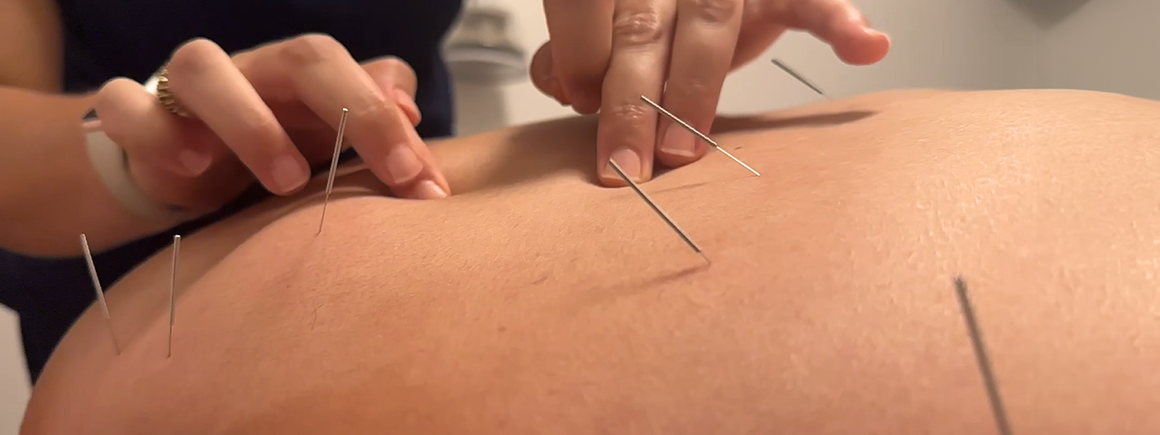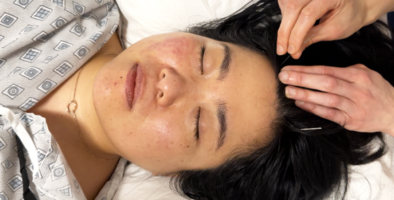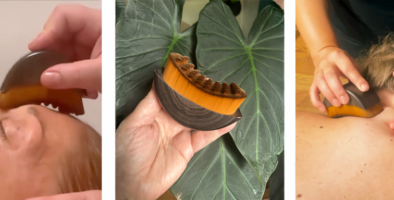How Acupuncture Can Help Regulate Your Emotions
You might be surprised at just how many conditions acupuncture can treat.
Acupuncture can help with a mind blowing number of unexpected issues. This traditional Chinese practice can offer relief from physical ailments, like if your neck hurts from looking at your laptop. It can also be beneficial if you get sick frequently, are recovering from COVID-19, or are hoping to conceive. Additionally, acupuncture can help delay visible signs of aging through cosmetic acupuncture and alleviate chronic pain with trigger point acupuncture. And on top of all of that, acupuncture can also help you with emotional issues like anxiety and depression. Read on to find out how acupuncture can support your body and help stabilize your mood.
How does acupuncture improve mood?
Acupuncture can improve mood in several ways. Firstly, the treatment is thought to influence the release and balance of necessary brain chemicals called neurotransmitters, such as serotonin and dopamine, which help regulate mood. Conditions like depression and anxiety often involve an imbalance of these neurotransmitters. Additionally, many believe acupuncture stimulates the release of endorphins—the body’s natural painkillers and mood enhancers.
Acupuncture also has significant anti-inflammatory effects. Inflammation is a natural defense mechanism in the body that can be exacerbated by stress and anxiety, which, in turn, can cause more anxiety. Studies show that acupuncture can reduce inflammation in the immune, digestive, respiratory, nervous, circulatory, and endocrine systems.
The environment in which acupuncture sessions happen can also affect your mood. Taking time to lie down in a quiet, meditative space can alleviate stress and tension, improving the treatment’s effectiveness.
Can acupuncture help with emotional stress?
Emotional stress can come from many different sources, including physical discomfort. When you have long-lasting pain, it’s often connected to feeling down or depressed. In a study looking into whether acupuncture could help people dealing with both chronic pain and depression, those who tried acupuncture said they felt less pain and were less depressed.
Translation? Acupuncture might be an excellent additional treatment for both chronic pain and depression, especially if you don’t respond well to usual medical treatments. Also, studies suggest that more acupuncture sessions correlate to reduced depression, meaning regular sessions could lead to better outcomes.
Another review indicates that acupuncture seems to lessen anxiety symptoms in people with Generalized Anxiety Disorder (GAD).
Can acupuncture release trapped emotions?
In traditional Chinese medicine, different internal organs correspond to specific emotions. For example, the spleen and stomach organs are associated with worry, overthinking, and, in more severe cases, depression. By balancing the energy flow to these organs, acupuncture can help these emotional issues, and in some cases, lead you to feel a noticeable emotional release during or after your treatment. Each person is different, and the process of working on emotions with acupuncture can vary depending on many factors such as health and family history, lifestyle, medications, how well your body responds to acupuncture, and more.
Research on acupuncture’s effectiveness for mental health is ongoing, but what matters most is how it makes you feel. Acupuncture is a safe treatment, so there are few reasons not to try it as part of a comprehensive approach to mental health, alongside other treatments such as counseling, lifestyle modifications and medication for more severe cases.




